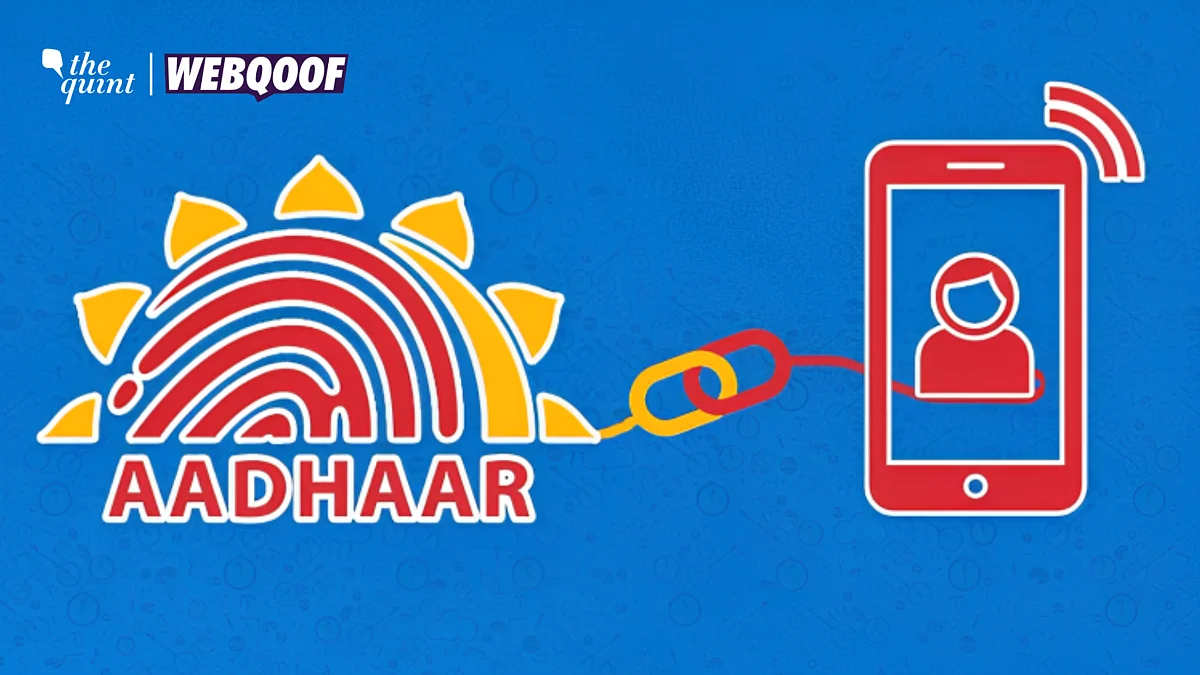Scamguard: Telecom Department Won’t Ask For Aadhaar and OTP; It’s a Scam!
Many social media users spoke of a new kind of scam where people pose as Department of Telecommunications officials.

advertisement
“We are from the telecom department, your phone number has been blocked due to *beep* reasons. To continue and speak to our customer care, press 9,” wrote Sumit, a Noida-based photographer in an X (formerly Twitter) post.
If you have received a similar call, it was most-likely a scam. This is a new type of scam that has surfaced where people pretend to call from the Telecom department and try to get you to send them your personal details.
“Unlike all other government customer care,” Sumit’s call was immediately transferred to a representative, in under ten seconds, after he followed the IVR (interactive voice response) instruction.
The representative, “in his South Indian accent, informed me that one number which is registered on my name in Kolhapur, Maharashtra has been found violating rules and found doing serious crimes like sending porn videos to unknown people,” his post read.
Sumit was among the fortunate ones who realised the true nature of this random call he got, which was a scam.
The number mentioned by the caller was not his number, so he asked them, “out of curiosity,” to cancel the number that was found violating laws.
To his surprise, the caller agreed immediately, saying that they would help him delink the number from his Aadhaar number.
That, of course, did not happen. The scammer told him that he would have to give them his Aadhaar details and the One Time Password (OTP) he would receive on his registered number.
Sumit’s presence of mind and awareness made him visit a page on the Department of Telecommunications’ website, which allows people to check the number of connections issued in a person’s name, by logging in using their Aadhaar linked mobile number.
TAFCOP is a free service by the Department of Telecommunications.
(Source: Department of Telecommunications/Screenshot)
This step made it evident that the caller was a scammer, so he disconnected the call.
“But, the thing is, I was quick enough to guess the fraud which was about to happen. Most of us couldn’t even have guessed it, he was so convincing and IVR made it look so authentic,” Sumit narrated.
People receive fraudulent calls from scammers posing as officials of the Telecom department, which start off as IVR calls. The receivers of these calls are told that a number registered in their name will be blocked in two hours.
This user, too, was able to identify the call as a scam in time, bringing it to the Department of Telecommunications’ (DoT) notice.
This user identified the number as one registered with Airtel.
(Source: X/Screenshot)
The people attempting to scam others pose as officials, warning people about phone numbers registered under their name being misused, warning them about being held responsible for violating the law.
Several people have talked about receiving similar calls.
(Source: X/Screenshot)
We noticed that the common elements in these calls were:
IVR calls.
Scammers posing as DoT officials.
"Press 9".
Warning about their number being misused for criminal purposes.
Threat of number being disabled in two hours.
It is unclear what the intended outcome of this attempt is. Which, in its own way, is a good thing, because it shows a growing sense of alertness on the layperson’s part.
Many people who spoke up about receiving these calls also mentioned that they were quick to disconnect them.
(Source: X/Screenshot)
(Source: X/Screenshot)
A wave of ‘digital arrests’ and money-related scams over video calls swept the country, which led to people losing lakhs of their hard earned money. Read our story here to learn how that scam works, which may help you stay vigilant and avoid falling for such nefarious activities.
To learn about all the different kinds of scams which are going around, see our Scamguard series of interactives which will take you through the modus operandi of different scams and show what you can do to stay stafe.
(Not convinced of a post or information you came across online and want it verified? Send us the details on WhatsApp at 9540511818, or e-mail it to us at webqoof@thequint.com and we'll fact-check it for you. You can also read all our fact-checked stories here.)
(At The Quint, we question everything. Play an active role in shaping our journalism by becoming a member today.)